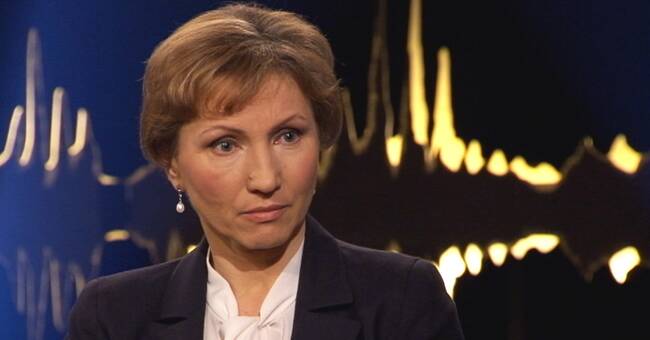Alexander Litvinenko worked for many years to investigate organized crime on behalf of the Russian security services.
In the late 1990s, he was fired after publicly accusing his bosses of corruption and fled with his wife and son to Britain, where he sought asylum.
Met KGB men in a hotel
After leaving his homeland, Alexander Litvinenko created a new life in the British capital.
On October 16, 2006, he met his two former KGB colleagues Andrej Lugovoj and Dimitri Kovtun and the British Tim Reilly at a luxury hotel in London.
Lugovoi had offered to act as a business partner to Litvinenko in an attempt to help Western companies invest in Russia.
During the discussions, tea was drunk - according to Reilly at the specific request of Lugovoi, who jokingly pointed out that people in England drank tea all day.
Immediately after the meeting, Litvinenko became acutely ill with what was first suspected to be food poisoning and was rushed to hospital.
Three weeks later, he died in what according to tests turned out to be the suites of polonium - an extremely unusual and difficult-to-detect radioactive substance.
"The tea had a strange taste"
And according to Alexander Litvinenko's wife Marina, a guest on SVT's "Skavlan", the husband suspected at an early stage that he had been poisoned.
- Towards midnight he became really ill and said to me: "Marina, I do not think it is food poisoning - it feels more like something chemical."
I did not understand what he meant, and even after he told me who he had met, we did not suspect anything at first.
He then mentioned that the tea had had a strange aftertaste.
But we tried to ignore the suspicions.
According to Marina Litvinenko, no one among the hospital staff suspected that her husband had been poisoned, and it was only during Alexander Litvinenko's last days in life that he spoke to British police.
- He helped the police so that they could investigate all the places he visited and the people he met.
And after the polony was subsequently discovered, everything changed.
It is an extremely radioactive material that cannot be bought on the black market.
It's not available anywhere - it's a state controlled product.
It could have been the perfect murder.
The assassination "probably approved by Putin"
After Alexander Litvinenko's death, the culprits were hunted for more than nine years.
The tracks led to Lugovoy and Kovtun, who both left a number of traces of polonium all over London, but the Russian side constantly refused to extradite the KGB staff to Britain.
Marina Livtinenko has always pointed out Russia as guilty of her husband's death.
And in January this year, she was upheld by a British public inquiry in which judge Robert Owen ruled that the assassination was "probably approved" by Russian President Vladimir Putin.
And the result of the British investigation is hardly unexpected, says Marina Litvinenko in "Skavlan".
- I can not say that I am surprised, but we felt grateful.
It was very difficult to come to this decision.
From the beginning, we knew how important the relationship between Great Britain and Russia is, and in 2007 we dared to believe that there would be a proper investigation and that someone would be singled out.
But now a full-scale investigation has been carried out and Putin's name was mentioned.
"You should never say never"
The British investigation into the death of her husband has meant a lot and Marina Livtinenko has not yet given up hope that the culprits will one day receive their punishment.
- You should never say never.
What happened is not about a regular trial in a court of law, but we published all the evidence.
And when I sat in court and listened to everything that was said, I thought it's amazing what this country has done for us.
Dare not return
Following the publication of the British report in January, the designated KGB men Andrei Lugovoy and Dimitri Kovtun have denied the allegations, and Russia's findings in the investigation are dismissed as "biased and non-transparent".
But according to Marina Litvinenko, her husband's death is not the only case in which Russian authorities have taken the lives of uncomfortable people, which is also the reason why she has chosen to stay in Britain with her now twelve-year-old son instead of returning to her homeland.
- What has happened in Russia in recent years shows that people are at risk of being murdered - people in high positions in society.
So unfortunately I can not say: "Tomorrow I will go to Russia".

